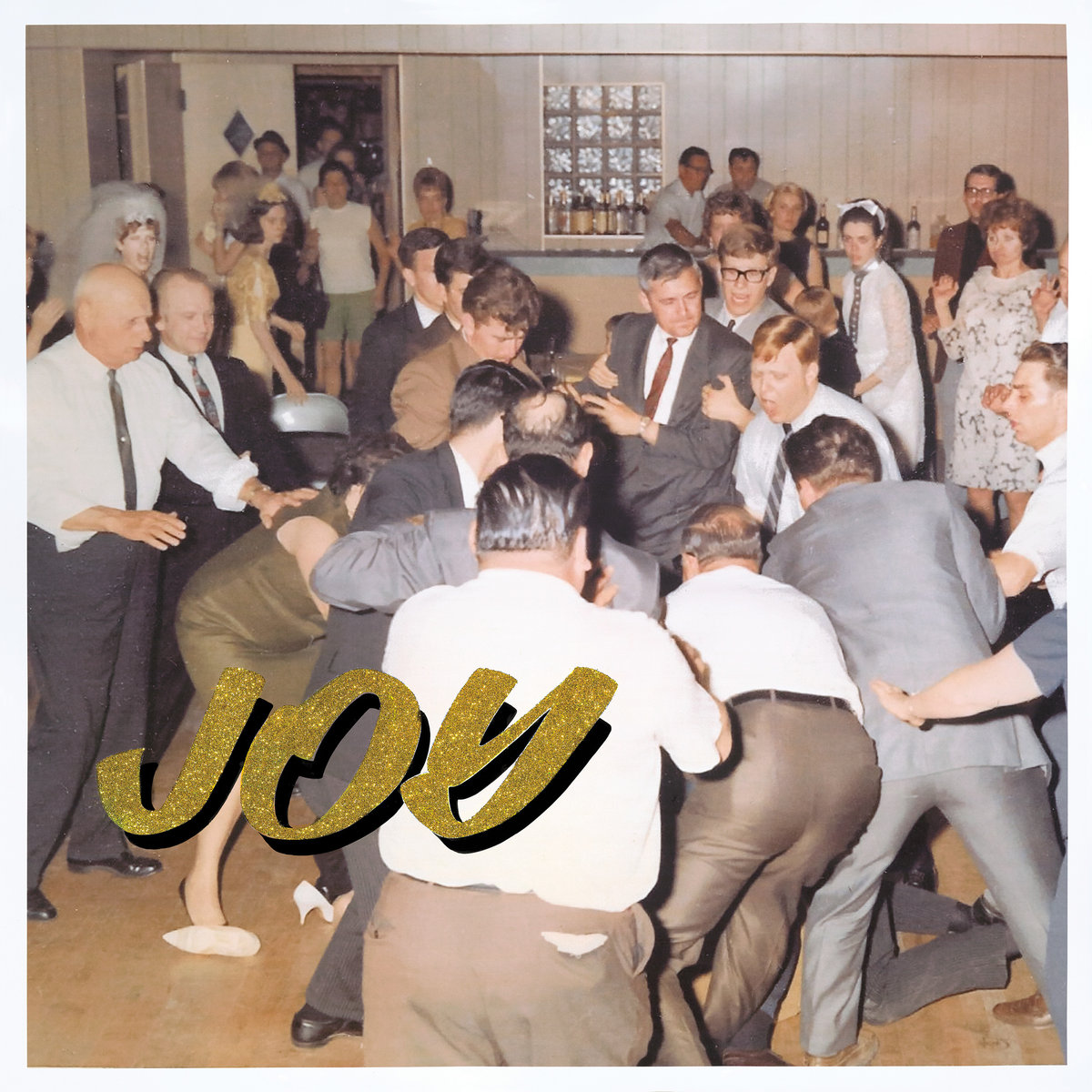Anna Calvi – ‘Hunter’

With Hunter, Anna Calvi presents the queer rock album of the year.
It’s no secret that Anna Calvi is an excellent instrumentalist and musician. The British artist started playing the violin and the guitar while still being a child and grew up with both influences from classical and rock music. Her superb skills both instrumentally and vocally led her both albums Anna Calvi and One Breath to being nominated for the much renowned Mercury Prize. With the last album One Breath being released five years ago, much has happened in the meantime for Calvi. One of the most significant events of that time was probably ending a eight year long relationship. This led Calvi to the idea of Hunter – an album that questions modern day gender roles. Calvi put herself in the position of a strong, desiring and hunting female ‚Alpha’ in a men dominated society.
The result of that is a fierceful strong and haunting record. The most outstanding track is probably Alpha – a confident and powerful rock anthem with an magnificent guitar outro. The songs As A Man and Don’t Beat The Girl Out Of My Boy are both big rock anthems that show a grown-up and feisty Calvi. With Wish, Away and Eden there’s some more thoughtful than feisty anthems on the album. While they’re all original in their own way, only the track Indies Or Paradise brings up an atmosphere that highly reminds of Massive Attack‘s work. But its hard to put Anna Calvi in a genre-drawer after all – but maybe ‚queer rock music with a focus on superb guitar solos‘ would be the best label, if you had to stick one to this record at all. Hunter is the artist’s most mature work to date, its sublime in instrumentation, vocals and lyrics. It’s more rock than its pop and last but not least it’s certainly the perfect soundtrack for showing the middle finger to the patriarchy. (Louisa Zimmer)
Song to get you started: Alpha
Stream it now: ► Spotify / ► Apple Music / ► TIDAL
IDLES – ‘Joy As An Act Of Resistance’
 ‘Joy’ instead of brutalist concrete: IDLES complete their razor-sharp punk with positive and important messages while not compromising a little bit.
‘Joy’ instead of brutalist concrete: IDLES complete their razor-sharp punk with positive and important messages while not compromising a little bit.
Everyone who happened to witness IDLES since their critically acclaimed debut Brutalism came out over a year ago, knew immediately: That’s a band with that special something. Their energy, as well as their distinct sound that’s not exactly punk, nor post-punk, nor hardcore but infused with a rare, unique drive, paired with lyrics that ruthlessly dissect our societies and our places in it – that’s all something the band itself probably knew would be rather hard to be banned on a follow-up record without repetition. But now behold Joy as an Act of Resistance: It’s even better, it’s even more urgent and at the same time, despite all the grief and anger and despair, it’s more light-headed. Against the background that singer Joe Talbot lost his child during the making of this record, recently opened up about sobriety and his former addictions and that the world gave IDLES no reason to be any less pissed: This record’s astonishing.
Where Brutalism sometimes sufficed in targeting the enemy, Joy as an Act of Resistance deliberately tries to counter that notion with positive images. There’s a (slightly twisted, but hey, they tried) love song to outweigh all the hate; there’s an unexpected pop punk hymn on the ‘beautiful immigrant’ Danny Nedelko set against all racist tendencies; and finally, there’s singer Joe Talbot establishing a curious, positive image of manhood against all the false ideals, manners and stupid masculinity on several songs. That’s the thread running through this modern rock manifesto: Talbot screams, shouts and fires his poisonous one-liners against everything male-ficent out there. Well aware though, that ‘the mask of masculinity / is a mask that’s wearing me’. There’s no other band as clever, joyful, articulate and passionate right now, than IDLES. Record of the year by band of the hour. (Henning Grabow)
Song to get you started: Samaritans
Stream it now: ► Spotify / ► Apple Music / ► Bandcamp
Troye Sivan – ‘Bloom’
 Boy becomes a man: Troye Sivan’s second album shows what great potential he’s got. Maybe Bloom is testimony to one of the future’s greatest pop stars.
Boy becomes a man: Troye Sivan’s second album shows what great potential he’s got. Maybe Bloom is testimony to one of the future’s greatest pop stars.
When The Good Side came out I played this second teaser/single for Troye Sivan’s new album Bloom to an academic group of cultural sciences undergraduates in order to let them write short reviews of the song. To my very surprise, some students didn’t even know Sivan. However, the majority of the reviews concluded that the atmosphere of The Good Side is striking. And, rightly so, this aspect holds true for the whole of Sivan’s follow-up to Blue Neighbourhood. Troye may not be a spokesman of the queer community in the sense of, let’s say, Olly Alexander. Still, with his sophomore record he does something Years & Years might have lost keeping track of, that is delivering a coherent album both musically and thematically that actually gives (probably especially younger) folks the opportunity to identify themselves with the overall package – namely growing up in an increasingly complex world. Whereas Years & Years first and foremost deliver light pop with sometimes heart-biting lyrics, Sivan primarily shows that he is growing up and becoming a proper pop star without focusing on effect and pomp. Therefore, his output sounds amazingly understated. He doesn’t need much to impress.
Still, in spite of being thematically and musically coherent, Bloom is a highly enjoyable listen and more diverse than one might thing. ‘What a heavenly way to die/ What a time to be alive’, Sivan constitutes in What a Heavenly Way to Die. Indeed, youth has got a lot to die with (re)creating oneself, looking forward rather than looking back. That’s why, in his opener Seventeen, Troye might also look at a younger self but not without realising that ‘boy becomes a man’ and that ‘age is just a number’. His words aren’t more complex but the way he tells this experiences of love and growing up makes the record quite addictive. Troye’s voice is sensual, the music supports that instead of coming to the front. It’s like you listen to him speak to ‘you’ as there is indeed a lot of ‘you’ in it. Troye Sivan‘s Bllom really is testimony to a becoming a pop star. Sure, the record’s content is nothing new but the way he sings about love and life is addictive. The way the artwork and the video clips are designed support Sivan‘s current position. He’s changing, he’s got got style. At the end of he album, Troye considers himself an animal rathan than a star, but that makes him only more likable. Bloom is what a solid pop record of someone groping up should sound like. But it’s even more promising than most might have expected. It feels very natural listing to it. Here’s hope that his undeniable potential pays off in the future, too, when he’s fully become the man he’s aiming at. (Chris Hegholtz)
Song to get you started: Bloom
Stream it now: ► Spotify / ► Apple Music / ► TIDAL
Wild Nothing – ‘Indigo’
 Inspired by the permanent technological transformations, Wild Nothings new record Indigo explores the connection between the analog and the digital world.
Inspired by the permanent technological transformations, Wild Nothings new record Indigo explores the connection between the analog and the digital world.
Our world constantly develops itself further regarding to new technologies and inventions: robots replace humans, AIs control your house, mobile phones can talk to you …
Jack Tatum and his retro pop moniker Wild Nothing are completely aware of these transformations and try to connect the best of both sides – analogue and digital – on their fourth full length Indigo. To record the album, he used analog instruments (e.g. guitars and keyboards) and digital elements (programs, plug-ins) which were first packed into demo material to be recorded with a full live band afterwards. What clearly stands out while listening to Indigo is the lo-fi sound that strongly reminds of the 80ies high times. Although using the newest technologies and computer programs, Wild Nothing and his sound travel back to the decade where computers and many other digital technologies were still in their infancy. That all results in a gentle feeling of nostalgia. Influences by Kate Bush and Roxy Music wanted the album to sound like a classic studio 80s record which hass fallen out of time. Indigo became a mixture of nostalgia and a certain timelessness but it also showcases the artists profound songwriting skills.
Tatum clearly achieved his aim to create this timeless album: Indigo connects catchy hook lines with conspicuous sythies and driving guitars that are surrounded by a certain 80ies lo-fi sound. A classic mixture that appears to never go out of style. There is the track Letting Go, a catchy and driving dreampop piece which works perfectly as Indigos opener: its cheerful and poppy character increases your appetite to listen to the rest of the album. Partners in Motion with its strong 80ies synthies and the spherical closing track Bend, featuring some women’s vocals and a wide sound range, are two other nameable songs that prove Wild Nothings ability to create absorbing and timeless music. In 1986 this would have become a massive global hit record which only underlines Tatum’s massive talent. (Miriam Wallbaum)
Song to get you started: Letting Go
Stream it now: ► Spotify / ► Apple Music / ► TIDAL
Big Red Machine – ‘Big Red Machine’
 Brothers in arms … and sound. The long awaited crossover between Bon Iver and The National became a creative and fulfilling adventure
Brothers in arms … and sound. The long awaited crossover between Bon Iver and The National became a creative and fulfilling adventure
The idea that the sum of all the creative parts is more important than the individual aspects of them isn’t entirely new. It’s as old as the term ‘supergroup’ one is automatically tempted to use once multiple famous musicians join forces. In many ways Big Red Machine is a mixture of these two extremes, lead by two leaders who aren’t actually interested in getting the most prominent spot in the limelight: The National‘s Aaron Dessner and Bon Iver mastermind Justin Vernon. But here they are – together in one group, joined by slightly famous collaborators from their PEOPLE network which they built around worldwide festivals like Eaux Claires in Wisconsin, Haven in Copenhagen and PEOPLE Festival in Berlin. The idea is as simple as effective: The project – in this case Big Red Machine – is just the shell and the two leading people leave the door open for everybody to join the process.
The ten tracks on their self-titled debut were born out of improvisational sessions and that’s something you immediately sense when listening to the record. Often loops mark the foundation for the fluent structures that combine Vernon’s folk notion with Dessner’s love for krautrock and tender electronic elements. In some way songs like the opening pieces Deep Green and Gratitude continue the spirit of their most recent work. The National’s Mouse On Mars-affected Sleep Well Beast vibes are as sensible as Vernon’s futuristic folk approach on Bon Iver’s critically acclaimed 2016 LP 22, A Million. However, quite quickly you realize that there isn’t a straight red line and anything seems possible in the Big Red Machine cosmos. From haunting choir and string performances (Lyla) to traditional gospel material (Hymnostic) straight to noisy breaks (Air Stryp) and cinematic piano play (People Lullaby) – Dessner, Vernon and Co. play the full spectrum. Luckily, Big Red Machine didn’t become a tough avant-garde affair – the songs are very much sensible and so are the musician’s skills. They might not be a ‘supergroup’ but this did indeed become a ‘superalbum’. (Norman Fleischer)
Song to get you started: Lyla
Stream it now: ► Spotify / ► Apple Music / ► TIDAL


